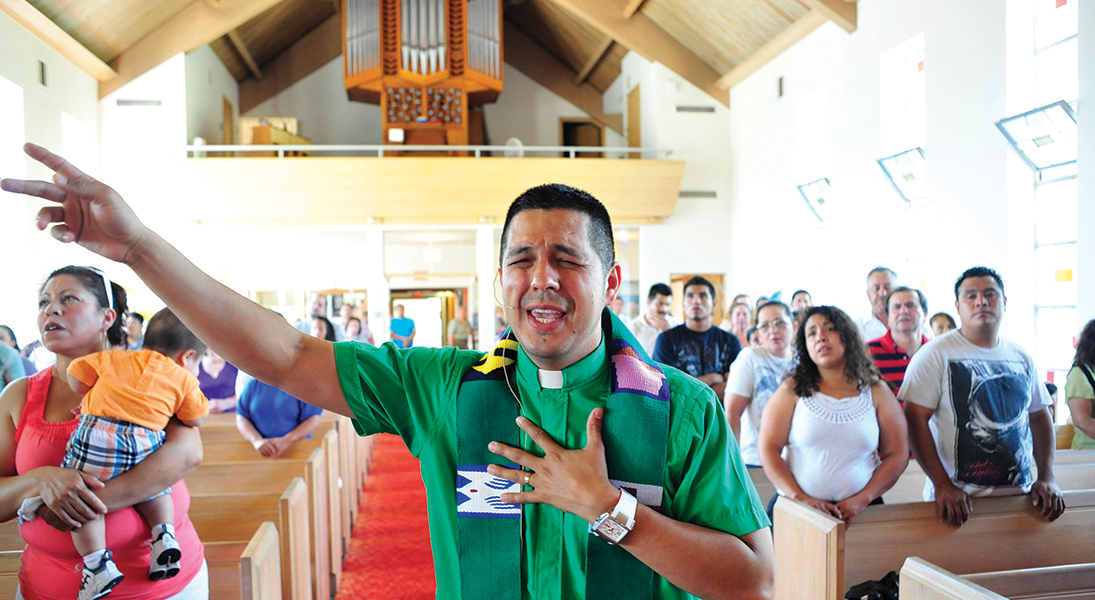Join us Mondays 6:30-8:00 PM in January to study Debby Irving’s book, Waking Up White: And Finding Myself in the Story of Race. Note this is a congregational study; however, not limited as such, this invitation is open for any who would like to join in our conversation. I originally read the book “Waking Up White” in early 2017. This brief study by late Lutheran Church-Missouri Synod President Al Barry shares what the Bible reveals about angels-both holy and evil. Luther Against the Devil Martin Luther often spoke about the devil and demons.
- Why Worship Is Important Online Lutheran Bible Study
- Why Worship Is Important Online Lutheran Bible Study Bible
- Esv Lutheran Study Bible Online
- The Lutheran Study Bible Download
- Lutheran Bible Study Ideas
Why Worship Is Important Online Lutheran Bible Study
- History
- World War I to the present
- Teachings
- Worship and organization
Several important mergers of various American Lutheran churches took place in the 20th century. The first two occurred in 1917, when three Norwegian synods formed the Norwegian Lutheran Church of America (NLCA), and in 1918, when three German-language synods formed the United Lutheran Church in America (ULCA). In 1930 the Joint Synod of Ohio, the Evangelical Lutheran Synod of Iowa, and the Buffalo Synod formed the American Lutheran Church (German). In 1960 the American Lutheran Church (German) merged with the United Evangelical Lutheran Church (Danish) and the Evangelical Lutheran Church (Norwegian) to form the American Lutheran Church (ALC). The Lutheran Free Church (Norwegian), which had initially dropped out of merger negotiations, joined the ALC in 1963. Two years after the formation of the ALC, in a parallel development, the ULCA joined with the Augustana Evangelical Lutheran Church (Swedish), the Finnish Evangelical Lutheran Church, and the American Evangelical Lutheran Church (Danish) to establish the Lutheran Church in America (LCA). The Missouri and Wisconsin synods chose not to engage in merger negotiations because of the more liberal stance of the other Lutheran bodies.
Why Worship Is Important Online Lutheran Bible Study Bible
In 1988 the ALC and the LCA—the former prominent in the Midwest, the latter on the east coast—together with the smaller Association of Evangelical Lutheran Churches, merged to form the Evangelical Lutheran Church in America (ELCA). This made the ELCA, with around 3.4 million members, the largest Lutheran church body in North America. The nearly 2-million-member Lutheran Church–Missouri Synod remained the second largest Lutheran church. The third major church of North American Lutheranism was the Wisconsin Evangelical Lutheran Synod, with more than 400,000 baptized members. The ELCA’s constituency is chiefly found in the Northeast and the upper Midwest; other concentrations of Lutherans are found in states where Lutherans first settled: Pennsylvania, New York, Virginia, and the Carolinas. Canadian Lutheranism, about 350,000 strong, is divided into two bodies paralleling the ELCA and the Missouri Synod in the United States. The larger of the two, the Evangelical Lutheran Church in Canada (ELCIC), had about 180,000 members in some 600 congregations by the early 21st century. In 1997 the ELCIC adopted an “evangelical declaration” as “a guide for its future mission.” Canadian Lutheranism is strongest in Ontario and the Western provinces.
Teachings

The question “What is Lutheran theology?” is not easily answered. Martin Luther himself was not a systematic thinker, and his colleague Philipp Melanchthon became for many his authentic interpreter, raising at once the charge that Melanchthon had distorted Luther’s thought. The doctrinal controversies in 16th-century Lutheranism are indicative of the difficulty of defining precisely what it means to be “Lutheran.” Nonetheless, Luther’s own thought has always been the guiding force in the delineation of Lutheran theology. The two major Lutheran confessional statements of the 16th century, the Augsburg Confession of 1530 and the Formula of Concord of 1576, have traditionally been thought to explicate Luther’s teachings.
Since the introduction of Lutheranism in European countries was not centrally directed, the emergence of Lutheran theology took place variously. Thus, not all Lutheran churches formally accepted the Formula of Concord. Authority in Lutheranism is understood as fidelity to the confessional documents that constitute authentic exposition of biblical teaching. Lutheranism has no formal teaching office comparable to that of the Roman Catholic Church.

Esv Lutheran Study Bible Online
Scripture and tradition
The Lutheran Study Bible Download
Foremost among Lutheran teachings is the insistence, shared with all Protestant traditions, that the Bible is the sole source of religious authority. Lutherans subscribe to the three ancient ecumenical Christian creeds together with the 16th-century Lutheran confessional statements. All Lutheran churches affirm the Augsburg Confession; some, notably those in Germany and the United States, additionally affirm the confessional writings found in the Book of Concord. The Formula of Concord designated the Bible as the “sole and most certain rule” for judging Christian teachings. This position was in marked contrast to the Catholic affirmation of both Scripture and tradition. Luther never accepted the Catholic insistence that church tradition was merely making explicit what was already found implicitly in Scripture.
Lutheran Bible Study Ideas
The new centrality of the Bible had dramatic consequences. Luther understood the need for a Bible in the German vernacular, for only if the Bible was accessible could its teachings be appreciated. Luther’s example of making available a vernacular Bible was followed by reformers throughout Europe, such as William Tyndale in England. Catholic theologians promptly recognized the powerful weapon Luther had created and undertook to provide vernacular translations of their own. None of them, however, possessed the literary cogency of Luther’s translation or of the translation produced early in the 17th century under the direction of King James I of England, the King James Version.
Training Description Dialectical Behavior Therapy Foundational Training (Remote Instructor-Led 5-day model) Level: 3- Comprehensive Training in Standard DBT Since its initial development in the 1980s DBT has been shown to be effective for an array of problems related to emotion dysregulation. Powered by Create your own unique website with customizable templates. Dialectical behavior therapy (DBT) provides clients with new skills to manage painful emotions and decrease conflict in relationships. DBT specifically focuses on providing therapeutic skills in. Group descriptiondialectical behavioral training relias.
Rpg games free download. When you decide download Mafia 2 torrent, you can find yourself in an American town called Empire Bay. An Italian by origin, the protagonist, Vittorio Antonio Scaletta, moved to America as a child, and was sure that dreams of a great future could certainly come true.

